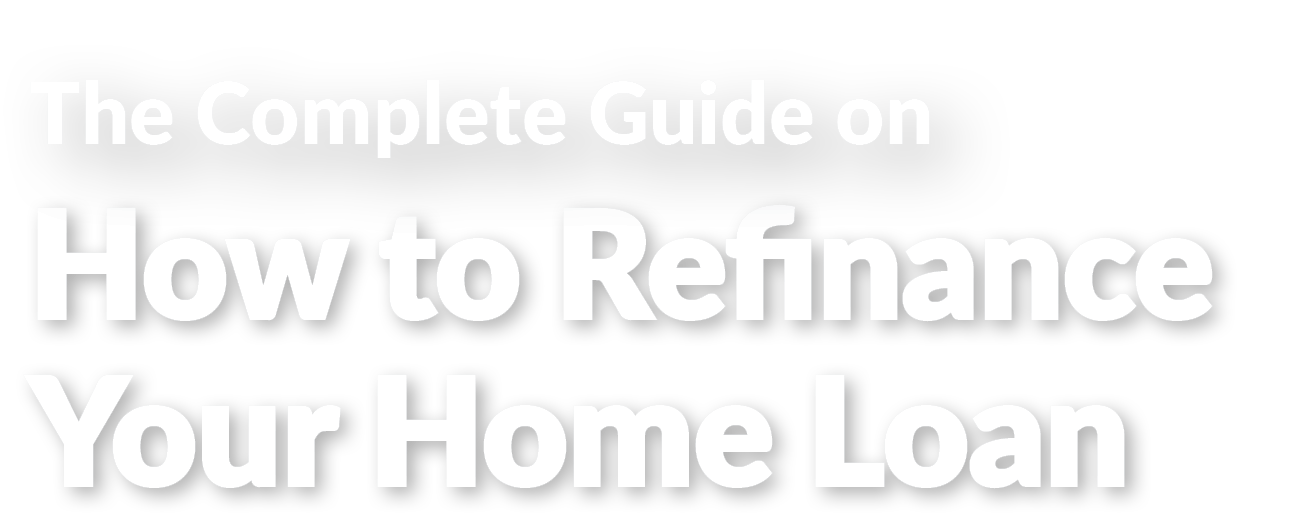What new loan options are there?
It is important whether you seek out a refinancer, or whether you keep things the way they are, to be clear about your goals. Perhaps a new loan is the answer. At Mortgage House, we have loans that can suit any situation. Our two most popular loans are our variable rate and fixed rate loans. We also offer split mortgages, which, as the name suggests, can split your loan into variable and fixed rates. No matter what your credit history, we are interested in hearing from you. You might be surprised and be eligible for a loan even if you thought you weren’t. We have access to loans for people who have had bad credit in the past, as well as low deposit and low doc options. And if you can support your loan application with a pledge from your family, we have other products as well. And, of course, if you are looking for a new loan, we also offer toggle offset loans portable loans, and interest-only loans.
What is the best refinancer home loan option?
For those refinancing in 2022 and beyond, you will see that there is an overwhelming amount of information about the best home loans for refinancers in the media. Deciding to trust in the experience and in-house loan products of a long-standing, reputable lender like Mortgage House is wise. We can unlock the potential of your loan. We take the stress and fear out of the refinancing process, minimising the time it takes to get advice, submit documentation, receive the lowest rate refinance loan products for you and reaching an informed decision. With online forms and swift customer service by our specialists, you will have a positive experience. Here at Mortgage House, we want to assure you that our steps for helping you refinance in Australia are streamlined for your convenience. The fact you have been through the borrowing chain once before can make you better equipped, and we can be there to help this time. As a refinancer of mortgage loans, we know every step of the process intricately. Helping you switch home loans or refinance your home loan in 2022 and beyond to save with a better interest rate is our mission. Call us to discuss the best refinance loan for you.
Where can I find out more about refinancing?
So, why should you consider refinancing now? Although rates are on the rise, interest rates are still at historically low levels and the current environment can present you with a great opportunity. The current variable rates can be a lot lower than when you first took out your loan, which can be very attractive. But it’s important to not make refinancing all about the interest rate. Refinancing mortgages should be done with a goal in mind. Consolidating your debt in one loan, or refinancing to buy another property, can result in different types of loan recommendations from us. The beauty of dealing with Mortgage House is our wide range of in-house loan products which can be tailored to your needs. There are no hard and fast rules, but we can help you keep an eye on things, and let you know when the time is right to refinance to achieve your goals. That can mean keeping an eye on your current loans, as well as the economic environment, and even your own family’s needs. There are lots of reasons to refinance and having us around with access to the same loans as other lenders, means we can make these kinds of moves easier. There is nothing to lose by finding out what refinancing solutions are available for you. Find more information in our mortgage tips checklist.
How can my current home loan help me refinance?
Your current home can play a big role in refinancing your loan. If you have been paying off your home loan with no major dramas over the years, you have probably built up a lot of what’s called ‘equity’. When it comes to refinancing, equity can be solid gold. Equity is the market value of your home, minus the balance of your loan. The more equity you have, the easier it can be to hit your refinancing goals. Lenders will use another equation based around how much you want to borrow, up against the market value of your property, and come up with a percentage. Anything greater than 80% can be labelled as high risk. Anything less than 80% will deem you a fair candidate for refinancing using equity. Feel free to call us for more information about equity value in your current home.
What documents to you need to apply?
Whether you’re refinancing to find a better deal, buy more real estate or free up equity in your home for other reasons, you will need to go through the processes of getting another mortgage. When you apply for a loan to refinance, there is not a lot of difference in what you will need to do. A good start is to work out the equity you currently have in your home, which we will detail below. Speak with our mortgage experts about your financial situation, and we will help you find a refinancer home loan that will be suitable for your property or financial objectives. If everything goes well, we can give you pre-approval and help you move ahead with your plans. However, you will need to provide us with a few documents, whether you are applying for a loan for 5 years or 30 years.
The first step is to provide us with information about your current property. We will do a valuation and let you know how much it is currently worth. That allows you to assess your equity and value your assets. Let us know the details of your current home loan if it is not with us. That will give us a chance to look at how your repayments have been going and how much you still have to pay. You will then supply the usual financial documents you need when you apply for a loan, such as proof of income, employment history, liabilities and any assets you have. You will also need to provide proof of identification. Click on our Documents Checklist for more details. If you do not have all of the necessary documents, don’t fear. We have low-doc loans and other advice to get you on the pathway to successful refinancing.
How much can you borrow for a refinancer home loan?
Finding the loan amount you want when you are refinancing can come down to the equity you have in your existing home. If you are looking to refinance simply to find lower repayments or better loan features, then that process is relatively simple. However, if you are looking to borrow more money, there are a few other things to think about, and equity is the most important one. Basically, equity is the difference between the market value of your home, and the balance of your loan. For example, if your home is valued at $600,000 and your loan balance is $300,000, then you could have up to $300,000 equity in your home. Refinancing means you could start with pre-approval of up to $300,000, although most banks and lenders tend to only let you borrow up to 80% of the market value of real estate.
This equity can be freed up to do a number of things, including investing in more real estate, helping someone else become a home buyer or investing in the stock market. Always remember that stamp duty applies to property purchases. When you apply for a loan, any loan (including refinancing) our borrowing mortgage calculator can help you get an idea of your borrowing power. Simply enter as much information as you can into it, and you will receive an indication of what you might be able to borrow. Speak with us for more details, including any terms and conditions that may not be obvious.
What are the costs of refinancing?
It doesn’t matter whether you have or are looking to get a fixed rate or variable rate loan, an interest-only or a principal and interest loan, there can be some costs and fees hidden in the terms and conditions. Firstly, we have a mortgage calculator that can give you an indication of what you might be able to save by refinancing. Our Switching Mortgage Calculator is a great place to start to identify any immediate repayment benefits. You will need to be aware of any ongoing fees and charges over the life of the loan. Take a look at the comparison rate of your new loan to get an indication of them. You may have to pay settlement fees if you repay your loan sooner than expected, and there may also be valuation fees associated with finding out how much equity you have. There can also be legal fees associated with a new loan, and you may have to pay Lenders Mortgage Insurance (LMI) if your new loan tips you over the 80% Loan-to-Value Ratio. If you want to sift through the jargon and find out exactly what it will cost to switch loans, feel free to call us for a no-obligation discussion.
Is it possible to fast-track the refinance process at Mortgage House?
At Mortgage House we know how important it is to get results as quickly as possible if you apply for a home loan to refinance. We can give your home loan a health check in as little as 20 minutes. From there, it’s a matter of finding a suitable mortgage, which we can help you with on the spot, and then applying. Contact our expert lenders to begin today. Don’t wait to get the ball rolling.
What options should you consider before refinancing?
The first thing to look at is the health of your current home loan. Look at your current financial position and work out whether it can be helped by refinancing. That can mean smaller repayments or having access to a range of features you currently don’t have. Exit fees and new lender fees are also something you will need to consider. Taking out a refinancing loan could extend the span of your loan. Your personal, financial and lifestyle goals all need to be part of the decision to refinance a home loan in 2022 or beyond. Weighing up the pros and cons is easy with help from our specialist lenders at Mortgage House. Get in touch online or by phone to discuss.


